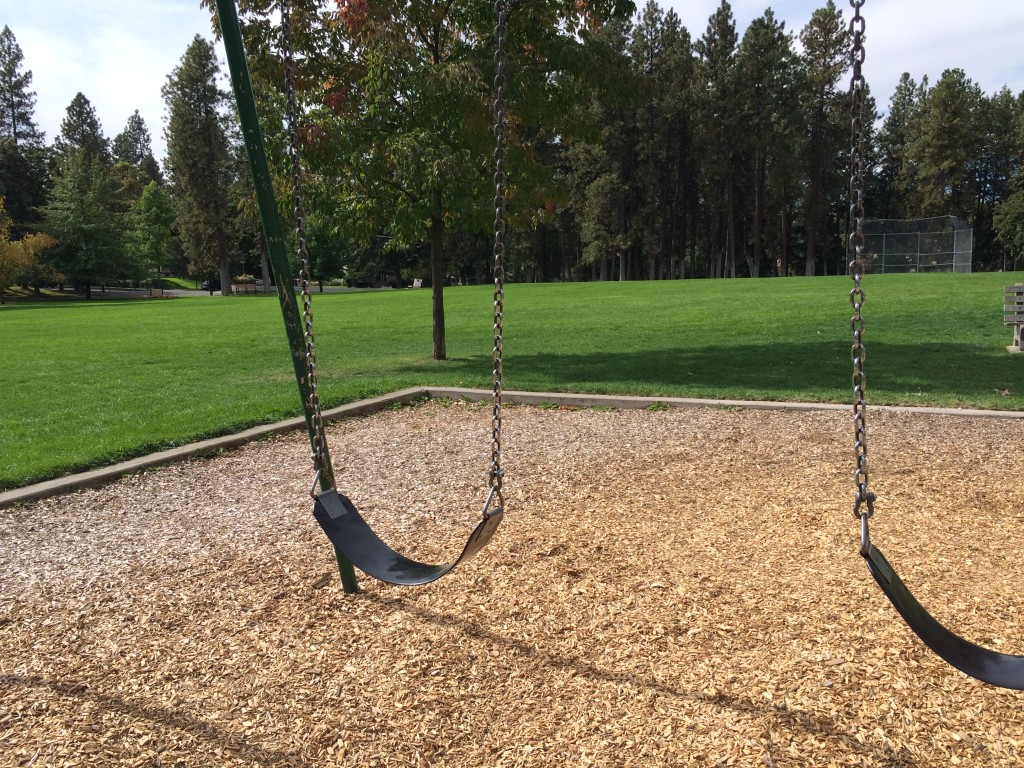When I was seven, my parents packed up two U-Hauls, myself and my 5-year-old brother. We drove three days from San Diego, my birthplace, to our new home in Spokane, Washington.
Spokane is on the eastern side of Washington State, the side everyone forgets is here. Around election season, the majority put up conservative signs. On this side of the Rockies, there is a desert. It rains, but not frequently.
For a long time, I thought that I would grow up and move away from Spokane. Before college I was in love with the idea of moving to Paris and writing in cafés like Hemingway. Instead, after a short stint working full time in a grocery store, I went to college in the middle of the corn fields of Indiana.
I thought that I would marry my college boyfriend and we would settle in Chicago. The city seemed larger than life to me, sticky, with hard edges. Chicago wasn’t my kind of town, but I was in love for the first time. I would have followed that love anywhere, long after he broke my heart.
Instead, I moved back to Spokane once more. I worked at a local winery high on a hill, and at nearly every library in the county. I covered restaurants and chefs for a local magazine. I made friends and ran into people I’d known longer than a decade at the grocery store. I began to move through the city like an adult, finding my way through familiar pathways of my youth.
From time to time, I would chat with my therapist about moving to a bigger city, hoping it might increase my chances of meeting someone I’d like to date. Twice, I contemplated moving to Portland, both times for a boy.
The second time, I almost succeeded. I had a job and a house secured. In the days and weeks before I was meant to go, I found myself craving a chicken chipotle sandwich from Rockwood Bakery, a coffee shop where my brother used to work, and a place I’ve never been to without running into someone I know. I bought one and cried as I ate it on my porch, thinking about what a long drive it might be the next time I had a craving. I wanted to buy several of their quiches and freeze them so that I could warm one up when I needed to taste home.
 I worked toward overcoming my fear of parallel parking so that I could wander downtown. I wanted to lay eyes on places I hadn’t been for a while. I wanted to fix them firmly into my memory so that I could carry them with me when I left.
I worked toward overcoming my fear of parallel parking so that I could wander downtown. I wanted to lay eyes on places I hadn’t been for a while. I wanted to fix them firmly into my memory so that I could carry them with me when I left.
Friends hosted their annual garden party in their backyard while the chickens were shut up tightly so they didn’t mingle with the guests. I held two brand new babies, one of them for hours, even though my arms ached. I knew that even if I came home once a month as I’d planned, to write my food articles, she would still be much older the next time I saw her. I squeezed just a little tighter.
That same baby fell asleep on my shoulder at brunch next to a sunlit window the week before I was supposed to move. My anxiety was speaking to me that day, throwing everything into sharp relief. I held that baby close, not wanting to let go even as we stood next to her ready carseat. My friend kissed my cheek and hugged me tightly, tearful, her daughter squashed between us.
Maybe it’s always hard to move, even when you are doing the right thing, but in those days and moments, I wondered.
I had only to throw my clothes in the car when the relationship slipped through my fingers, leaving me to decide whether I would stay or go. After a dark, sleepless night, I wrote two emails and a text. I cancelled my move.
Not everyone understood my decision. I can’t tell you how many people asked me why I hadn’t gone through with my big adventure. I didn’t have the heart to tell them that moving wasn’t the adventure at all. Falling in love has always been where I get my thrills.
Almost moving was a strange experience.
It was several weeks after the aborted move when I told my therapist I wanted to stay in Spokane. “I’ve been afraid,” I told her. “I’ve been afraid to love this place because I thought it was a good place to grow up, to raise a family, but not to meet someone I might love.” She nodded, because we’d had this conversation many times. “I don’t want to be afraid anymore. I want to dig my feet in like roots.” Finally, I unclenched my hands and let Portland fall. Spokane reached for my hands and held them warmly.
A few weeks ago, I witnessed a historic event in Spokane. Our mayor was reelected for the first time in 42 years. He’s a friend of mine, and I love the look on people’s faces when I walk right up to him and give him a hug in social settings. He has a tagline: “This is my town.” I found myself whispering those words at the election party as I raised a glass of red in celebration.
Even now they wander through my head as I drive to the bank or the grocery store, or take an evening walk along the ridge near my house at sunset.
This is my town, I think, and I mean every word.



